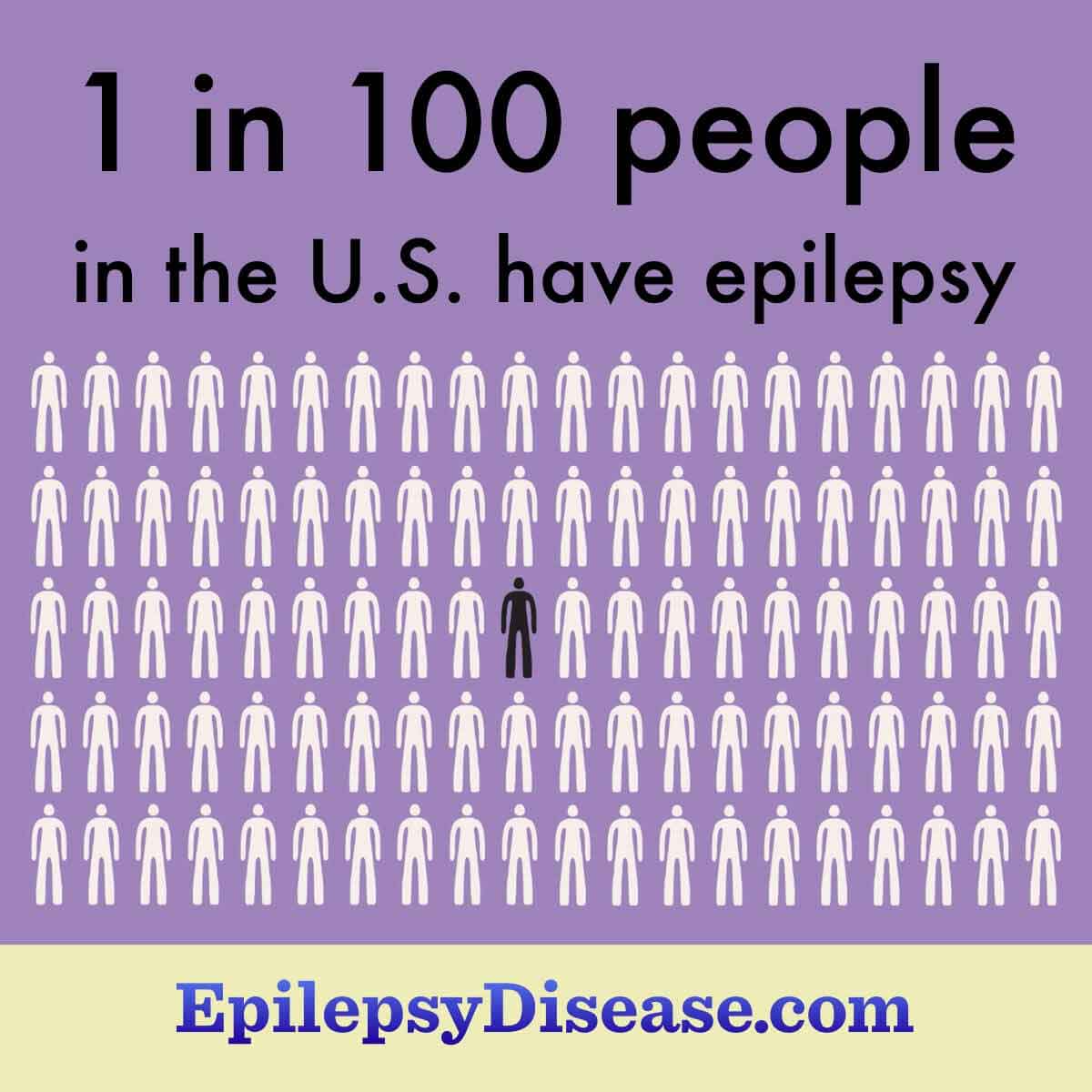Who Gets Epilepsy?
Reviewed by: HU Medical Review Board | Last reviewed: November 2021 | Last updated: November 2021
Epilepsy is a neurological (brain) disease that causes recurring seizures. The seizures are caused by abnormal activity in the brain. Epilepsy is the most common brain disease in the world. People of all ages are affected.1
Epilepsy is the fourth most common brain disorder in the United States after Alzheimer’s disease, migraine, and stroke. About 150,000 new cases are diagnosed each year.2
Who gets epilepsy?
There are about 50 million people in the world with epilepsy. About 3 million adults and half a million children in the United States have active epilepsy. That equals 1.2 percent of the total U.S. population, according to the Centers for Disease Control and Prevention. This means that in a group of 100 people, 1 will have epilepsy.1,3-5
Epilepsy statistics
Active epilepsy means epilepsy that has been diagnosed. The person with epilepsy must also currently take drugs to control seizures or have had 1 or more seizures in the past year.2
Certain states have more people with active epilepsy. This includes California, Texas, Florida, Georgia, and the states of the Northeast and Upper Midwest. About another 2 million people had active epilepsy at 1 time but no longer do. This is called resolved epilepsy.3,5
How common is epilepsy?
Epilepsy is the fourth most common neurological disease in the United States. There are more people living with epilepsy than with autism, Parkinson’s disease, multiple sclerosis, and cerebral palsy combined.6,7
Other things to know about epilepsy include:2,6
- About 1 in every 100 people in the United States has had an unprovoked seizure.
- Epilepsy is more common in young children and older adults.
- New cases are more common in children, especially before their first birthday. This risk decreases until around age 10.
- About half of new cases are diagnosed in people aged 65 and older.
- After age 55, epilepsy risk rises again as people have strokes, brain tumors, and Alzheimer’s disease.
- Slightly more men than women have epilepsy.
- Military combat veterans are at higher risk of post-traumatic epilepsy.
Epilepsy by race and ethnicity
Doctors do not know why, but certain racial and ethnic groups are more likely to have epilepsy. This includes:6-8
- Epilepsy is more common in people with a Hispanic background.
- About 3 in 200 Asian Americans have epilepsy, but research is limited.
- Active epilepsy is more common in white people than in Black people.
- But Black people are more likely to develop epilepsy over their lifetimes.
- Black people are more likely to experience status epilepticus.
More research is needed to find out which social and economic factors affect a person’s chances of developing epilepsy.6
What are the costs of epilepsy?
Both adults and children with epilepsy face economic hardship because of their disease. Studies have found:2,9,10
- The average hospital stay for epilepsy lasts 3.6 days.
- Hospital costs for all people in the United States with epilepsy total $2.5 billion a year.
- Children with seizures are more likely to live in poverty. Their parents are more likely to report food insecurity.
- Average yearly costs of epilepsy treatment range from $10,192 to $47,862 in 2013 dollars. This number was higher for people with uncontrolled epilepsy.
- Among the 5 most common childhood chronic conditions, epilepsy costs the most.
- Roughly 1 out of 3 people with epilepsy have uncontrolled epilepsy. This means their seizures are not controlled with treatment. Uncontrolled epilepsy greatly increases healthcare costs.
- Nearly half of college-educated people with well-controlled seizures are unemployed.
The best way to reduce epilepsy’s social and economic costs is to find an accurate diagnosis and targeted treatment plan as quickly as possible. Studies show that increasing a person’s access to anti-seizure drugs greatly reduces health costs and improves quality of life.2
